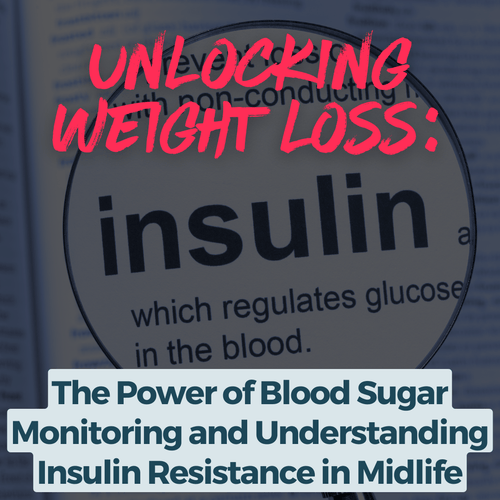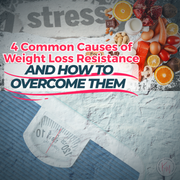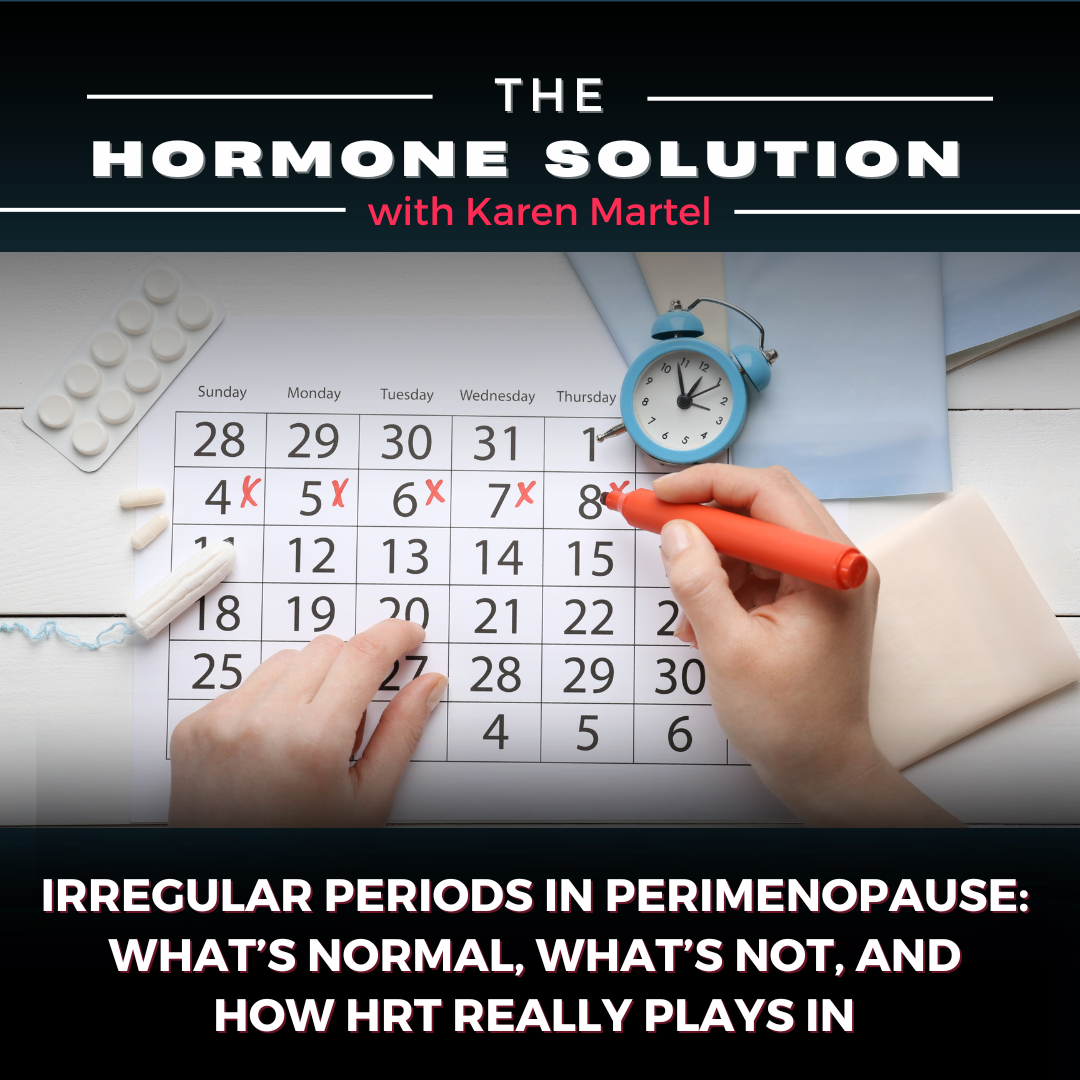
Unlocking Weight Loss: The Power of Blood Sugar Monitoring and Understanding Insulin Resistance in Midlife
Are you frustrated with your weight loss journey despite your best efforts with dieting and exercising? It might be time to look deeper into your body's insulin response. Insulin resistance could be the hidden culprit behind your struggle. According to a recent study, 4 in 10 young American adults without diabetes have insulin resistance, strongly associated with adult weight gain. This condition impacts millions of Americans annually, leading not only to weight gain but also to serious long-term health consequences. Many women going through menopause experience a decline in estradiol, which significantly increases their risk of developing insulin resistance and type 2 diabetes. Research shows that postmenopausal women are particularly vulnerable, with studies indicating that up to 50% of menopausal women may develop insulin resistance, a key precursor to type 2 diabetes. This hormonal shift not only contributes to weight gain but also heightens the risk of serious long-term health issues, underscoring the importance of monitoring blood sugar levels during this stage of life.
What is Insulin Resistance?
Insulin resistance happens when your cells start ignoring insulin, the hormone from your pancreas that keeps your blood sugar levels in check. When your cells stop listening, your blood sugar levels stay high, prompting your pancreas to crank out even more insulin. This not only makes it tough to shed those extra pounds but also sets off a frustrating cycle of weight gain and insulin overproduction. Factors like diet, hormones, lack of exercise, and excess body fat can all play a role in this process.
Breaking the Cycle
Ready to break free from the frustrating weight loss plateau? The key to reversing insulin resistance and shedding those stubborn pounds lies in balancing your blood glucose levels and boosting insulin sensitivity. This holistic approach involves dietary changes, regular exercise, stress management, and quality sleep. And for an added edge, consider incorporating a continuous glucose monitor (CGM) into your routine to get real-time feedback on how your lifestyle affects your blood sugar levels.
Reversing Insulin Resistance
The fantastic news? Insulin resistance can be reversed! With intentional changes to your diet and lifestyle, you can stabilize your glucose levels and improve insulin sensitivity. Here's how:
- Eat an Insulin-Resistance-Friendly Diet: Opt for whole foods, prioritize lean protein, healthy fats, and fiber, and be mindful of meal timing.
- Exercise Regularly: Engage in both resistance training and aerobic exercise to boost insulin sensitivity.
- Manage Stress: High stress can elevate cortisol and glucose levels. Practices like yoga, meditation, and even sauna sessions can help.
- Improve Sleep: Consistent, quality sleep can significantly enhance insulin sensitivity.
Hormones and Hormone Replacement Therapy (HRT)
Let's not forget about hormones! As you navigate menopause, hormone fluctuations can exacerbate insulin resistance. Estrogen plays a crucial role in glucose metabolism, and its decline during menopause can make managing blood sugar more challenging. Hormone Replacement Therapy (HRT) can help balance these hormones, potentially improving insulin sensitivity and aiding in weight management. Consulting with a healthcare provider about HRT could be a game-changer for your metabolic health.
Monitoring Your Progress with a CGM
Using a CGM provides personalized insights into your glucose trends and variability, showing you how your diet, exercise, sleep, and stress affect your blood sugar levels.
Empower yourself with the knowledge to tackle insulin resistance head-on and unlock a smoother, more effective weight loss journey!

Find Karen Martel on Apply Podcast
Karen Martel is a Certified Hormone Specialist and Transformational Nutrition Coach dedicated to empowering women through their health journeys.
As the host of the popular podcast The Hormone Solution, Karen tackles the complexities of hormonal health, weight loss resistance, and the challenges that come with perimenopause and menopause.
Her mission is to disrupt outdated narratives surrounding women's health, providing reliable information and practical solutions that help women reclaim their vitality.
Tune in to discover how to embrace life's stages while enhancing overall well-being.





